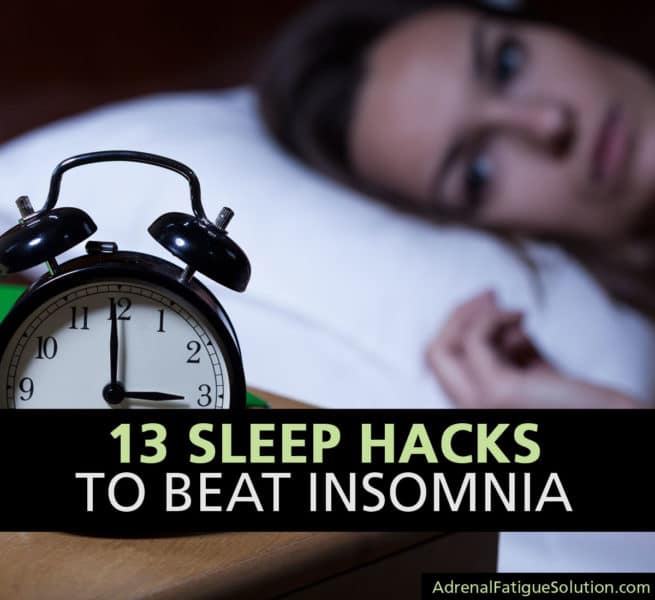We know that we’re supposed to get six to eight hours’ sleep each night – but how many do YOU get?
Studies show that the average American gets around 6.5 hours sleep on a weeknight. While this doesn’t sound too bad, consider another study that shows what too little sleep can do for you.
For those who sleep less than six hours a night, the risk of dying prematurely (before 65 years old) increases by 12%. And sleep deprivation has also been associated with conditions like heart disease, high blood pressure, obesity, type 2 diabetes, and high cholesterol.
Your body needs adequate rest each night in order to repair and rejuvenate. It’s while you’re asleep that the brain takes time to forge new connections and restore chemical balances. Without enough sleep, you’ll start to experience symptoms of fatigue like:
- Yawn constantly
- Feel irritable
- Be fatigued during the day
- Wake up un-refreshed
- Have trouble remembering things
- Feel constantly sleepy
Sound like you? Read on to find how you can get a good night’s sleep – naturally!
How To Get A Good Night’s Sleep
- Keep It Dark
Are there too many sources of light in your bedroom? Sleeping in a pitch-black room will prevent light from disturbing your slumber. Block out all light sources, including natural and electronic. - Wind Down
In the two hours before going to bed, start getting into ‘relaxation mode’. Don’t exercise, don’t eat large meals, and don’t stimulate your brain by watching an action-packed suspense thriller movie! Turn down the bright lights in your room, and keep away from electrical gadgets as much as possible. - Kick the Caffeine
That’s right, caffeine is a stimulant – it will NOT help you fall asleep! Research shows that drinking caffeine 6 hours before bed will still disrupt your sleep. Try to have your last coffee before 12pm, or at least eight hours’ before going to bed. This should allow it to pass through your system by the time you’re ready to hit the hay. - Set A Regular Bedtime
Decide on a suitable bedtime and stick to it. Your body clock will adjust accordingly and begin to prepare itself for Snoozeville at this time each night. - Try Chamomile
Chamomile is a herbal medicine that contains powerful sedative properties. It helps induce a state of relaxation and calm, allowing your body to drift towards sleep. It also eases any digestive issues that might be keeping you awake. Steep chamomile leaves in a tea and drink in the late afternoon or evening. - Try Magnesium
Magnesium is an essential mineral that many people are lacking due to the poor mineral concentration of our soil. Magnesium is required for a multitude of biochemical reactions in the body – and one of the most important of those is relaxation. Research has shown that supplementing with magnesium can lead to a material improvement in your sleep quality. Even better – get your magnesium from foods like avocado, spinach, or pumpkin seeds. - Drop The Drink
Drinking alcohol before bed may seem like a good way to relax – until your body starts breaking it down in your sleep. This is enough to wake you up again, and it usually happens around 3-4am. And remember, an alcohol-induced sleep is the perfect recipe for a hangover! - Keep Your Feet Warm
Socks may be the simplest way to help you fall asleep. Studies show that keeping the feet warm by slipping on a pair of socks speeds up the process of drifting off to sleep. - Do Your Exercise
Working out during the day will help to burn off excess energy and induce a state of relaxation by the time you’re ready for bed. Research has shown that people who exercise regularly tend to sleep better than those who don’t. Just make sure your exercise session is done with at least two hours before bedtime. - Eat Earlier
Heavy meals in the two hours before going to bed will NOT help you to sleep. After eating, the body needs to work hard to break down all that food, which can keep you stimulated. Lying down also wreaks havoc on the digestive process and increases the chance of reflux or indigestion. If you need to snack before bed, keep it light. - Work Elsewhere
Keep your workspace and your sleep space separate! Working near your bed or even just in your bedroom will remind you of what work you’ve done that day, or still need to do – which is not going to put you at ease! Make your bedroom a space that’s free from stress-inducing thoughts or activity. - Try Meditation
Science has shown that meditation brings about a calm, peaceful state of mind and helps in controlling mental activity. Taking just 20 minutes out of your day to sit quietly and practice the art of meditation can reduce stress, anxiety and yes, even insomnia. - Plan Your Day
Having something to look forward to each day can make a huge difference in your motivation to get some rest. Make a point of scheduling something that’s worth getting up for – and going to bed for!
If you want a more detailed look at techniques to improve your sleep, take a look at my comprehensive sleep hygiene guide.
For more information on adrenal fatigue, including how it can affect your sleep and what to do about it, check out The Adrenal Fatigue Solution. I co-wrote it with Dr Eric Wood, and it contains information about the optimal diet, the best supplements, and the smartest lifestyle choices to fix your fatigue.




Leave a Reply